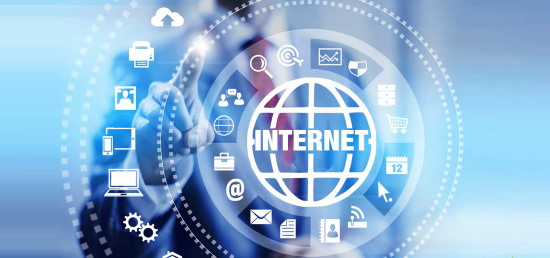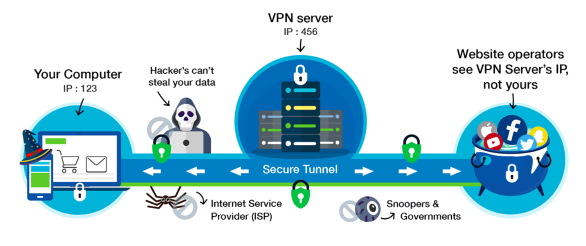When it comes to working on the internet, things can get a little confusing for some. While you may have never heard of an ISP or a VPN these two semi-related acronyms can play a big part in your data, and the protection of it. One of the most important aspects of browsing the web is the protection of your data, so when you look at VPNs and ISPs, a good question to ask yourself is “Who can you trust and why?”.
Before we answer that question directly, let’s look at your data and why it is important.
The Importance of Your Data
Your data paints a clear picture of who you are and what your web behavior is like. Because of this, it can be used by advertisers, cybercriminals, and governments to target you with advertisements or gather further information about you which you may not necessarily want to be known. This is why you need to put procedures in place, or at least understand the importance of protecting your data and how it relates to ISPs and VPNs.
ISPs and Your Data
The thing with ISPs is that they have a lot of control over your data. They also know just how valuable your data is, and know that they can often benefit from providing this data to external sources.

The fact that ISPs know that your data is valuable isn’t so bad, most people understand that data is valuable and can be used to their benefit. The issue with ISPs comes with their willingness to sell that data. Since their main purpose is not to protect your data, but just to connect you to the internet, they technically don’t owe you any data protection. The thing is ISPs are actually allowed to sell your data, so there isn’t too much that you are actually able to do about it if you don’t use a VPN. What’s possibly worse, is that ISPs also won’t inform you of when your data is requested or when, how, or to who they sell your data.
So, if you ask yourself the question: “Who can you trust and why?”, in terms of an ISP and your data, the simple answer is that you can’t completely trust them with the safety of your data. With that being said, you do still need an ISP to provide you with various types of connection to the internet, and picking a good ISP can still make a big difference in your data safety, since you can see exactly what you are signing up for.
VPN Protection
As for VPNs (Virtual Private Networks), the simple answer to the question which we mentioned is that you can trust them. But why?
VPNs are a great source of protection for your data because the main purpose of a VPN is to do exactly that. Failing to uphold their promise to protect your data would tarnish the brand, lowering their customer retention, and causing users to no longer go with that VPN provider. Your privacy and the safety of your data is the main concern for VPNs, making them a trustworthy source of data protection.
The way that VPNs work is they create an extra barrier of protection for you as if you are on (as described in the name) a private network. To put it simply, what you do and how you behave on the internet is passed through an encryption barrier which protects you from external people and companies trying to view your activity. In fact, this level of encryption is created in such a way that not even VPN providers know what you are doing on the internet, giving you complete privacy and protecting your data as much as possible.
The Different Types of VPNs
As amazing as it might sound that you can be protected by simply using a VPN, there are two categories of VPNs that you can get, and you need to be aware of each to learn who you can trust the most.

The first category is a free VPN. While paying for internet protection may not be at the top of your list of things you particularly want to do, good things do usually come at a price. Although the internet comes with many good examples of freely accessible content such as web templates or HTML cheat sheets, using a free VPN isn’t much better than ISPs in terms of your data protection, because they also need to make money somehow. Free VPNs often actually go against their main purpose of protecting your data, as they display intrusive advertisements on your screen and still sell your data. They just do it a little differently by selling it to highest bidders.
The best options to look at when looking to use a VPN are Premium VPNs. Although these require payment, you have peace of mind about the safety of your data and can therefore browse the internet as you like, without intrusive ads or anyone using your data for their personal gain. If you are still concerned about the protection of your data, many of these Premium VPNs come with a money-back guarantee.
These are great VPNs to use since you will be putting your money towards something that will actually protect your data, and if something does happen, you can simply get your money back and use it elsewhere. This way, you will be protecting yourself as well as the money you put into those protection efforts.
When it comes to maintaining privacy online the growing trend of global censorship at the state level makes most commercial VPNs risky. Opting for private proxies servers to main anonymity more effectively.
When it comes to ISPs and VPNs, life can get a little confusing. While all signs for the safest route to take point towards VPNs, there are still some dangers such as free VPNs which you need to look out for. It is unfortunate that you can’t simply trust your ISP with keeping your data safe, but when you look at the specific requirements of an ISP, their main goal is to provide you with an internet connection and not to protect your data. Just try to be as safe as possible, do your research, and pick a VPN that you know you can trust to encrypt your activities and keep your data safe from external individuals. If you choose correctly, you may be able to get a money-back guarantee to further protect you from any wrong doings.